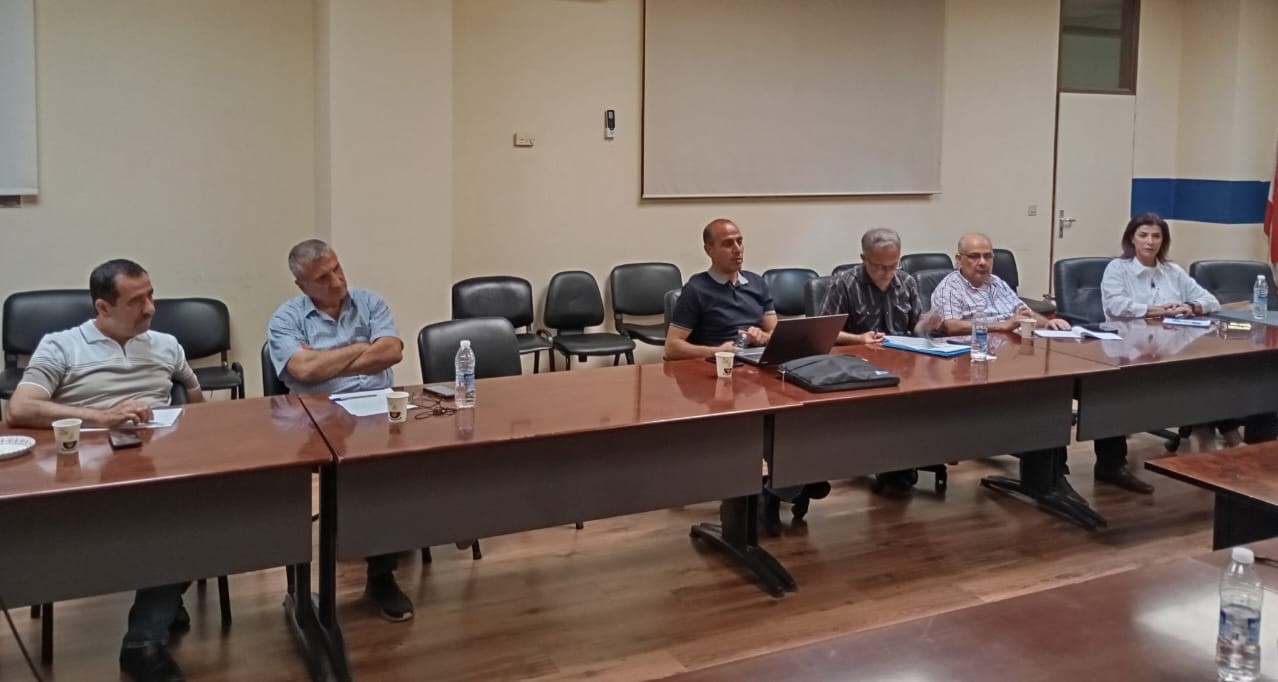In the wake of a series of crises that have beset Lebanon since 2019, the capacity of institutions to collect and access reliable water data has significantly declined due to a lack of funding, limited personnel availability, and deteriorating or insufficient resources for equipment maintenance and operation. This hinders in-situ data collection, as well as the collection of censuses and surveys, weakening the foundational conditions necessary for informed decision-making across various sectors that manage or use this vital resource and preventing a thorough and strategic planning based on the Integrated Water Resources Management (IWRM) requirements of the new Water Law (Law 192).
Therefore, it was not surprising that, following the suggestion of the Ministry of Energy and Water (MoEW) various sectors have made it a priority to discuss together water data availability and gaps within the Water-Energy-Food-Ecosystems Inter-Ministerial Group (WEFE IMG) coordination meetings. These meetings are led by the Ministry of Energy and Water (MoEW) and facilitated by the Global Water Partnership-Mediterranean (GWP-Med) as part of the WEFE Nexus Policy Dialogue activities implemented in Lebanon since 2022 under GEF UNEP/MAP MedProgramme Child Project 2.2.
The Group has already met two times in June 2023 and April 2024. During the previous two meetings, participants agreed on the necessary operational modalities for the smooth collaboration of the Group identifying challenges and obstacles that their institutions are facing with water data. Of particular importance in these discussions are the status of socio-hydrological and water data critical for water management and governance at the River Basin level, as highlighted during the Nexus Policy Dialogue.

The WEFE Inter-Ministerial Group, is led by the Lebanese Ministry of Energy and Water and facilitated by GWP-Med. It facilitates collective engagement of relevant institutions to prioritize common solutions.
The water data discussion - effectively coordinated by Dr. Abbas Fayad, an expert in hydrology and water resources - progressed during the 3rd WEFE IMG hosted by MoEW on the 13th of June 2024. Participants included representatives from various governmental bodies such as the Ministry of Agriculture (MoA), Ministry of Environment (MoE), Ministry of Public Works and Transport (MoPWT), Ministry of Industry (MoI), Ministry of Tourism (MoT), and the Lebanese Agricultural Research Institute (LARI), who actively and enthusiastically engaged in the discussions, at the same time acknowledging the importance of this endeavour for cross-sectoral collaboration and effective policy planning.
At the onset, participants explained the current status of water data availability and gaps for their institutions and confirmed the need for cross-sectoral cooperation. They were encouraged to complete a water data inventory, which will become the first concrete output of the WEFE IMG and will assist various institutions, administrations, and stakeholders in identifying priority interventions for filling gaps in data, that are needed to fulfill their roles and mandates, in a financially sustainable manner. Participants from various institutions responsible for curating in-situ observations and census statistics highlighted the need for significant capital expenditures for equipment, personnel, and field costs, as well as operational and management expenses. Such costs Lebanon cannot afford given the ongoing crisis.
This ongoing initiative will allow relevant Lebanese institutions to assess available water-related data, recognize gaps in data and knowledge, and explore options for mitigating them (e.g., use of global and reanalysis datasets, remote sensing techniques, and modelling). It will also highlight the necessity for prioritizing the collection of new data and reaffirm the mandate and specific responsibilities of relevant public agencies tasked with data collection and analysis, possibly leading to a realignment of financial support from partners and donors to ensure the effective execution of their functions.
Ultimately, the promotion of integrated policymaking and management combined with tangible solutions will contribute to the security of water, energy and food resources, protect valuable ecosystems and their functions and assist the country’s sustainable recovery.
